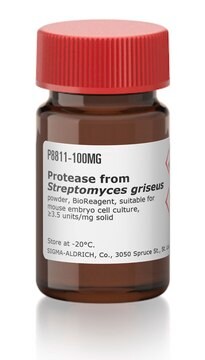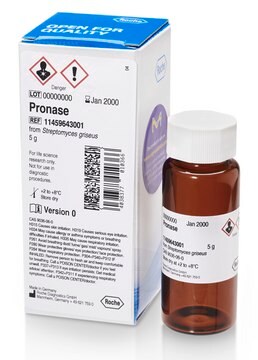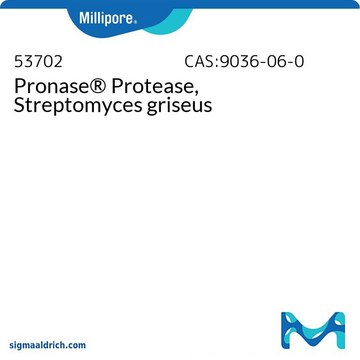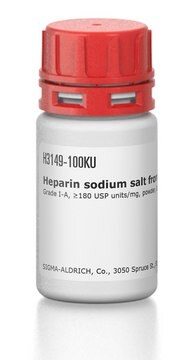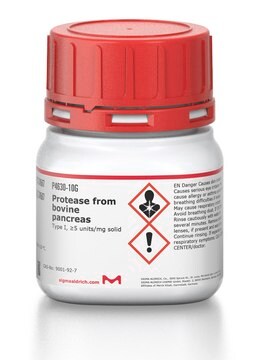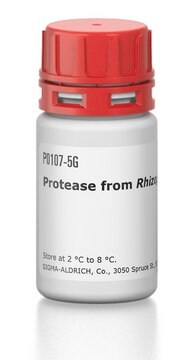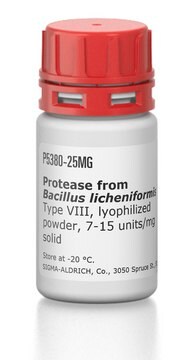P5147
Protease from Streptomyces griseus
Type XIV, ≥3.5 units/mg solid, powder
Synonym(s):
Actinase E, Pronase E
About This Item
Recommended Products
biological source
Streptomyces griseus
Quality Level
type
Type XIV
form
powder
specific activity
≥3.5 units/mg solid
solubility
10 mM NaAc (pH 7.5) and 5 mM CaAc: soluble 0.2 mg/mL at 37 °C, clear, colorless to tan
shipped in
wet ice
storage temp.
−20°C
Looking for similar products? Visit Product Comparison Guide
Related Categories
Specificity
Application
- for the digestion of nucleus pulposus (NP) tissue
- in the catalysis of asymmetric one pot Mannich reaction
- for deproteinization of starch
- digestion of brain slices for the cell dissociation
Biochem/physiol Actions
Features and Benefits
- highly stable in pH range of 5.0 to 9.0, with peak activity at pH 8.8
- compatible with many DNA and RNA isolation buffers
- broad substrate specificity
Quality
Physical properties
Unit Definition
Preparation Note
related product
Signal Word
Danger
Hazard Statements
Precautionary Statements
Hazard Classifications
Eye Irrit. 2 - Resp. Sens. 1 - Skin Irrit. 2 - STOT SE 3
Target Organs
Respiratory system
Storage Class Code
11 - Combustible Solids
WGK
WGK 2
Flash Point(F)
Not applicable
Flash Point(C)
Not applicable
Personal Protective Equipment
Choose from one of the most recent versions:
Already Own This Product?
Find documentation for the products that you have recently purchased in the Document Library.
Customers Also Viewed
Protocols
To standardize a procedure for the enzymatic assay of Protease using Casein as a substrate.
Our team of scientists has experience in all areas of research including Life Science, Material Science, Chemical Synthesis, Chromatography, Analytical and many others.
Contact Technical Service